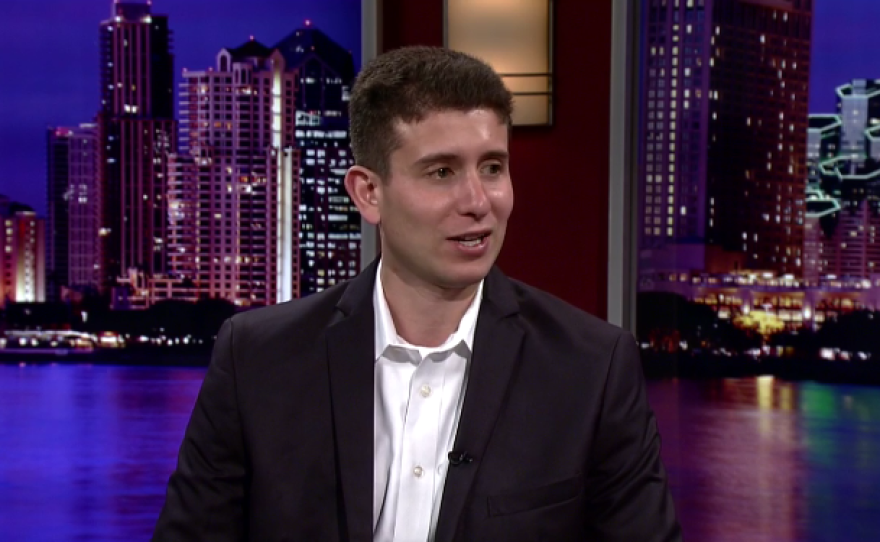Although Mayor Jerry Sanders announced last week he had eliminated San Diego's structural budget deficit, an expert on local politics said the city is not out of the woods yet.
Vlad Kogan, Ph.D. candidate at UC San Diego and co-author of the new book “Paradise Plundered,” spoke with KPBS about the mayor’s announcement.
Kogan said although the city’s revenues now match its expenditures, the city has not been making needed infrastructure repairs for the past 10 years, so there will be more costs in the future.
For example, he said, skimping on repaving roads means the city will have to do more costly asphalt work down the line.
“Over the last decade or so, the way we’ve really balanced the budget has been to cut back on needed repairs, repaving streets, maintaining libraries and fire stations,” he said. “What it does in the short term is not doing routine maintenance saves you some money, the problem is it also creates a lot of costs down the road.”
Kogan said the city has $1 billion in deferred maintenance needs, or “repairs we should have made but we haven’t made yet. “
He also said the current city budget’s plan for infrastructure spending over the next five years calls for spending “$100 million less than we need to just to keep things where they are.”
Although the mayor promised to use the extra budget money to restore services, including library and recreation center hours, Kogan said those bumps are not enough to get the city back to where it was 10 years ago.
“Going forward, it’s unrealistic to expect service levels return to where they were 10 years ago,” he said.
Last year, Andrea Tevlin, an independent budget analyst for the city of San Diego, predicted the city’s deficit would continue until 2017. She was asked to speak with KPBS about the mayor’s announcement, but declined.
“It is premature for me to comment on the mayor’s mid year report and his perspective on the structural budget deficit particularly in light of our deferred capital needs, low service levels and an uncertain economy,” she said in a statement.
The mayor was also not available to speak to KPBS “Midday” or “Evening Edition.”
The mayor said last week that increased tax revenues and cuts in spending allowed the city to move into the black.
Kogan added that because some of the improvements in the budget rely on an improved economy, a double-dip recession could mean the city’s financial status will be disrupted again.
That uncertainty means the city needs to find ways to handle uncertainty, Kogan said.
“The best way to deal with uncertainty going forward is for us as a city to figure out what our priorities are so when revenues fall short, we know what we’d rather cut or what revenues we’d rather raise that deal with those problems,” he said. “So far that’s a conversation that we haven’t had yet.”








